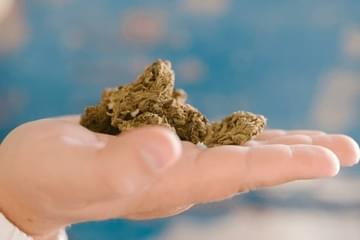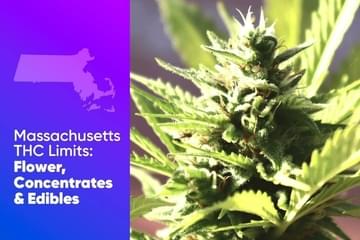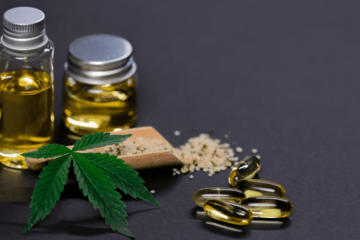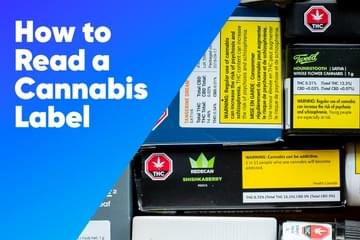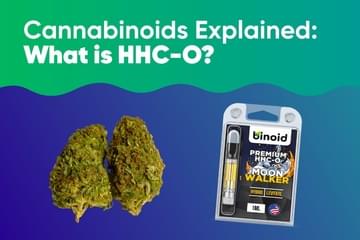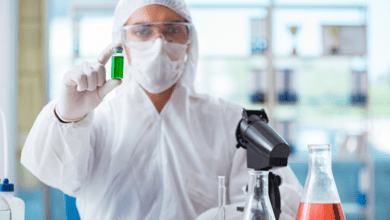
Cannabis Testing: Why It's Important for the Industry
Published on 6/7/20
Updated Jun 15, 2022
Cannabis has certainly changed a lot over the last few decades. First came improved cultivation techniques, then more efficient consumption methods and higher potency of THC - and now, product testing. Legal pot has turned from a pipe dream to multi-billion dollar cash that will only grow and expand as other stores in newly legalized states. That's because even today, the industry is showing no signs of slowing down. We're not far from record years in terms of legal cannabis sales, so we are industrializing and scaling the legal cannabis supply to meet demand. To do that, growth will need to get bigger; more importantly, testing will be more critical than ever.
In the past, the industry's medical and recreational sides grew significantly without much supervision, but now new rules and regulations are re-shaping the landscape. Effective cannabis testing is forcing cultivators, processors, dispensaries, and distributors to tighten up processes to ensure safety for the end consumer.
This article is going to break down exactly how and why cannabis testing is essential, give you all the info on what they're looking for during cannabis tests and how that information is necessary for you, and break down a few of the differences between, for example, a cannabis sex test and a test to determine what strain it is.
Why is Cannabis Testing Important?
Just as you don't want lead and other dangerous toxins in your water, food, air, clothing, or other everyday items, you don't want them in your cannabis products! And despite still sitting in a sort-of de-facto limbo when it comes to legality, the legal cannabis industry is no different when it comes to unique rules, laws, and regulations when it comes to plant purity and testing standards. It wasn't always that way, however.
Before any sort of regulatory oversight in the cannabis industry in the early days, less than ethical growers and retailers would see selling cannabis products as an opportunity to make "a quick buck" without quality control. Consumers with compromised immune systems have even gotten sick from consuming contaminated or inferior cannabis products.

Since cannabis products are consumed via a variety of methods for medical or recreational purposes, they must meet specific standards and regulations for acceptable limits without harming the consumers' health. Today, such standards and regulations are still under development in each state as the marijuana testing industry grows and matures. Note that there is no federal mandate for cannabis products since the federal government still considers cannabis illegal, so all of these tests, rules, and regulations are self-imposed for the overall well-being and growth of the industry.
In addition to testing the products for safe consumption, they are also tested for potency. After all, to dose correctly, you'll need to know the cannabinoid profile of the plant. The higher the THC content is in a product, the more expensive the product will be to get and replace once it's gone. For medical patients, both of those factors are enormous points of concern.
Hence, cultivators are incentivized to maintain high-quality products (and their buyers' trust). If they don't grow quality flower, then a significant amount of money could be lost, especially if contaminated products have to be thrown away or recalled.
Plain and simply put, the testing of marijuana products is primarily conducted in professional cannabis testing labs for two main reasons: Determine the potency of the cannabis products and verify the safety of the products for consumption.
What to Test for in Cannabis?
So now that we know the bare-bones basics of how and why testing works the way it does let's dig a little deeper into exactly what they're looking for on these tests. In professional marijuana testing labs, they test for both potency and the presence of these contaminants in the cannabis products:

Potency
THC testing for potency is necessary to allow for proper medical marijuana dosage or for consumers to control their "high" from a desired concentration of THC. The potency will express how much THC and CBD are in a product. Knowing the cannabinoid profile of the cannabis product you're using is essential for dosing correctly, especially for medical patients. Doing this testing removes the mystery and guesswork when it comes to cannabis and makes it more of a science instead!
Microbes
Microbes include bacteria, mold, fungi, and yeast. Keep in mind that microbes are common and abundant in our everyday lives. Only select harmful microbes will cause illness in humans. Cannabis plants and products can pick up microbes at any point, from cultivation to handling and processing of the products. An added layer of testing ensures that the cannabis customers are getting is safe for consumption and doesn't have any nasty germs or bacteria festering all over it.
Heavy Metals
Heavy metals are toxic at concentrations beyond acceptable levels in humans. While it's true that there's dangerous stuff in trace amounts in pretty much anything we eat (think apples and the cyanide in their seeds.) Common heavy metals found in cannabis are lead, mercury, cadmium, and arsenic. The danger is ingesting them and accumulating them in the body with repeated exposure to them over time. Our bodies are not able to remove them efficiently after exposure.
The cannabis plant is a "hyperaccumulator," which allows the plant to readily absorb metals from the soil compared to other crop plants. That means that if we're not careful or are buying our cannabis from black market level dealers, they can't match the same quality as the store-bought legal cannabis products. The source of heavy metals could come from pesticides or naturally occurring in the soil.
No matter where the stuff is coming from, customers should be able to enjoy some cannabis goodies. Heavy metals are universally harmful and should be avoided; testing is the best way to ensure that tainted product is safe.
Pesticide
Pesticides include fertilizers, insecticides, fungicides, miticides, and growth stimulators. And in a mostly unregulated and rapidly expanding industry, growers are doing anything they can to get the edge on their competition and sell to consumers. To do that, they must keep the plant alive for long enough to harvest. They protect the plant from insects and microbes or encourage faster growth.
Unfortunately, since cannabis is illegal at the federal level, the Environmental Protection Agency (EPA) would not issue guidelines on the acceptable use of pesticides on cannabis. That's where individual testing comes in. Until cannabis is federally legal, it will likely remain this way as well.
Solvents
Solvents are chemicals used to extract compounds from cannabis flowers, meaning they'll primarily be found in concentrates like wax, shatter, crumble, or something else like that. The resulting compounds include cannabinoids and terpenes. Harmful solvents, such as butane and propane, which are petroleum-derived, are efficient at extracting compounds and cheap to use.
Regarding terpenes and testing, solvents could persist in end products if not refined and cleared out efficiently. And, just like the heavy metals we mentioned above, humans shouldn't be eating those levels of them. Implementing and standardizing comprehensive testing is the best way to avoid doing this.
How to Test Marijuana: Types of Lab Tests
Now that we've gone in-depth on what types of tests are happening let's dig a little deeper into where these tests are being run in the first place. There are different methods to test marijuana in cannabis test labs.
Here are lab test definitions for the most commonly used methods:
Mass Spectrometry

Mass spectrometry is an analytical technique used to measure the mass of different molecules in the product. It will tell you the number of known materials, identify unknown compounds, and accurately indicate other molecules' chemical properties. Within weed testing, it will be able to detect any impurities or contaminants in cannabis products, biological or not.
Simply put, these labs are here to make 100 percent sure your cannabis is clean. And if it's not, they'll find it!
Chromatography
Chromatography is used to detect the concentration and if any particular compounds appear in the cannabis product. The technique will separate a cocktail of chemical compounds in a solvent into its components to detect and analyze the parts.
Gas chromatography (GC) and high-performance liquid chromatography (HPLC) are most commonly used to detect residue solvents and concentrations of THC and CBD.
DNA Detection
Polymerase Chain Reaction (PCR) is used to detect the presence of biological contaminants, such as fungi and bacteria. After the past two years, all of us should be VERY familiar with the ins and out's of how a PCR test works.
However, we've got you covered with a simple and accessible overview for those who are still unfamiliar or unsure of how they work. A small piece of DNA from the cannabis product is only needed because the PCR process will make millions of copies of that DNA for further analysis when the sample size is sufficient.
What's Next For Cannabis Testing?

Professional recreational and medical marijuana testing labs are crucial to maintaining the quality, integrity, and trust within the industry and for consumers. However, cannabis is still illegal at the federal level, so it's up to each state and testing lab to regulate the safety, quality, and potency of cannabis products, leading to a patchwork of different testing standards. What one state may consider toxic at a particular concentration may be acceptable to another- a challenge the cannabis lab testing industry is currently facing.
Currently, only a handful of states require products to pass marijuana testing for medical and recreational markets. Some states are already starting to establish their first accredited cannabis labs. There have been discussions to establish nationwide testing where an independent third-party lab researcher will analyze cannabis samples. Still, it is not possible now because it is illegal to transport cannabis across state lines.
We anticipate as the cannabis industry matures and is legalized across all 50 states, the states and professional cannabis testing labs will implement better and uniform guidelines and standards across the United States.
Is cannabis testing important to you when buying products? Tell us why or why not in the comments below!











